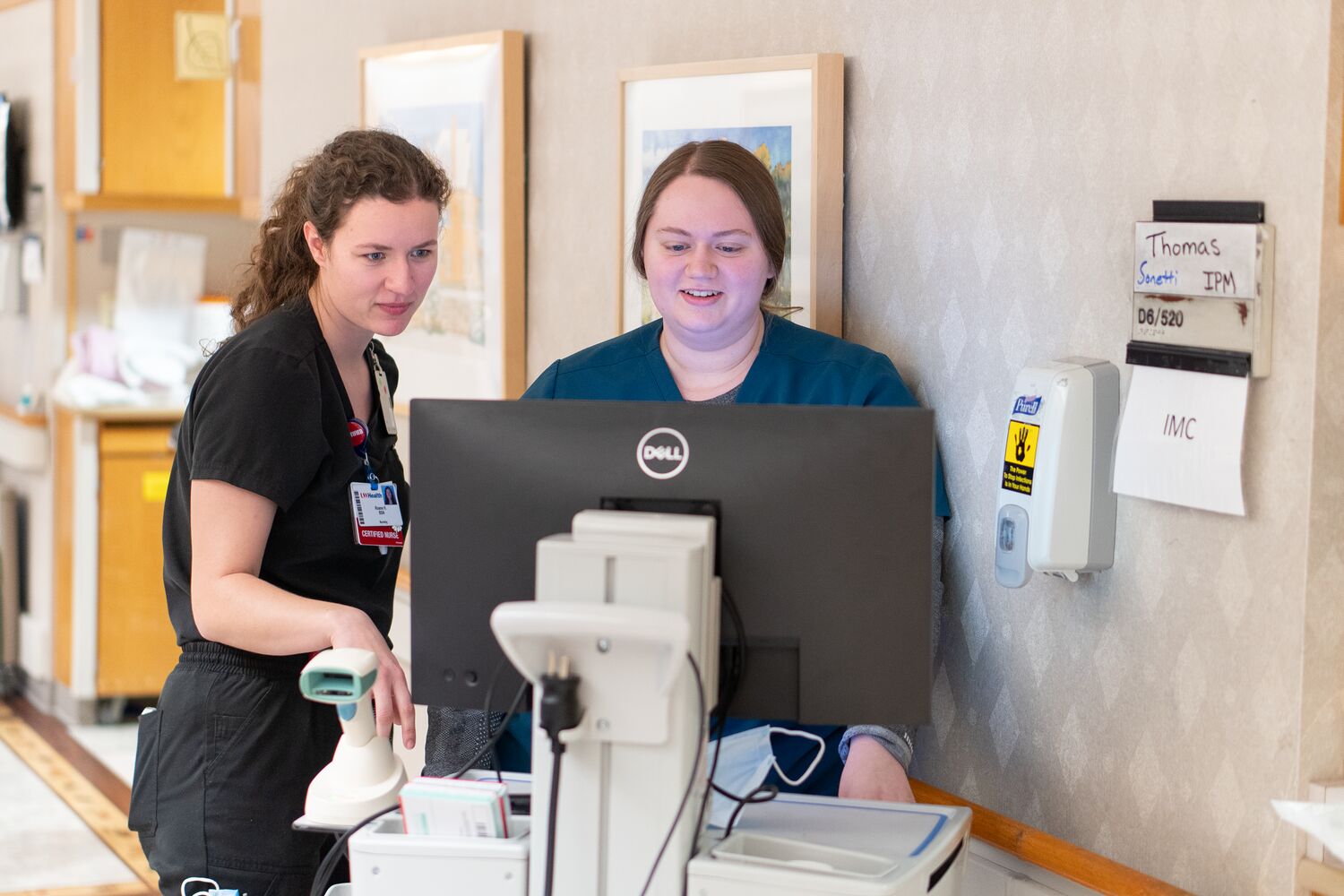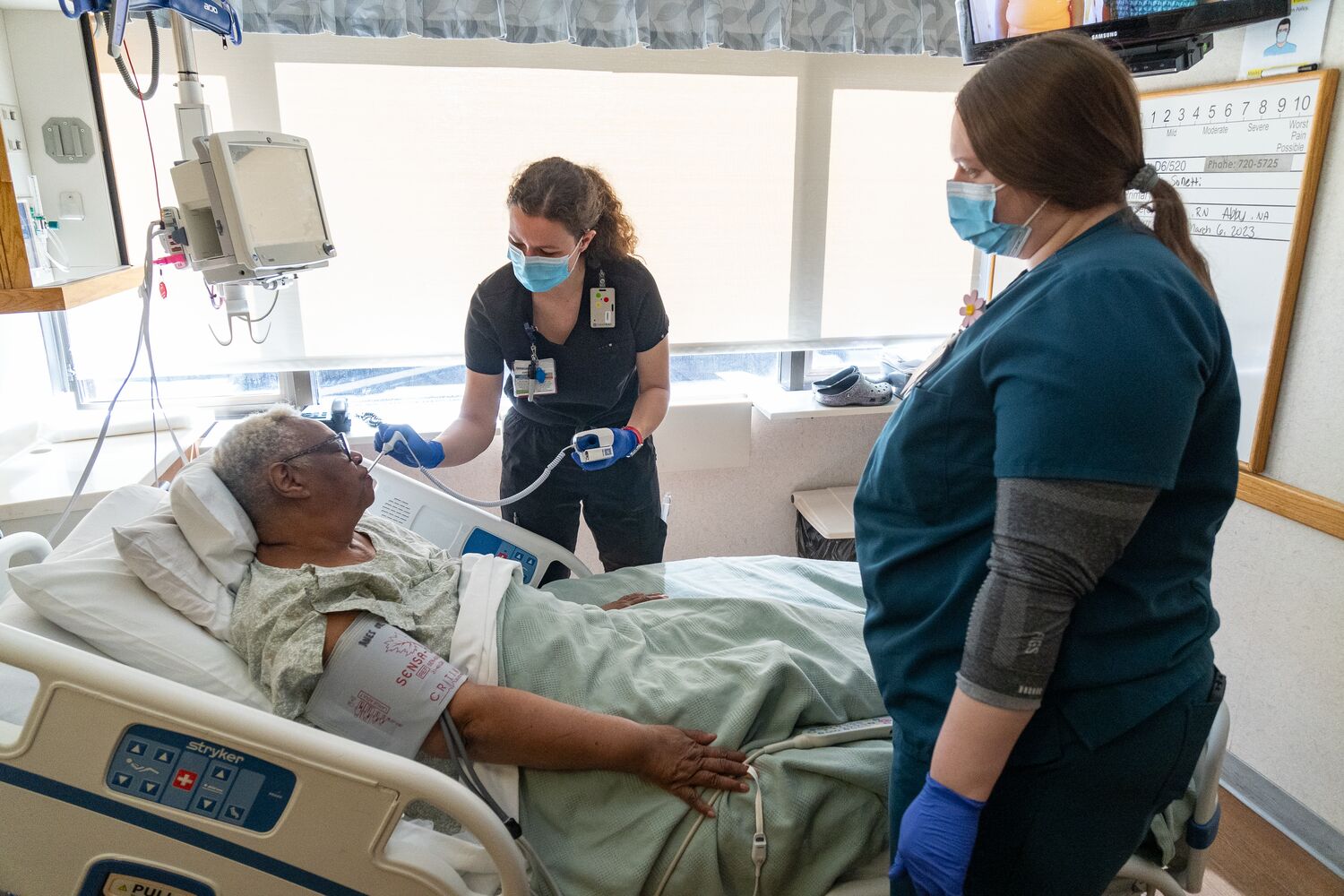IMC training proves rewarding for new and experienced RNs

Float pool nurse Abigail Callaway, RN, had been at University Hospital for about a year when she got the chance to “up train” to care for patients in the hospital’s growing number of Intermediate Care Units (IMCs) throughout the system.
“I joined because I wanted to see what other types of nursing are out there,” Abigail said. “In my previous job, I saw IMC patients and I wanted to keep up on those skills. A lot of our patients are very complex, and I like the challenge of being able to care for more complex patients and to learn more.”
Abigail was one of the first float nurses to go through a three-month training program that had her rotate through the hospital’s four main IMCs, as well as some of the specialty care IMCs. In each unit, she was assigned to a preceptor nurse who supervised her training. All new hires into the float pool are automatically being uptrained during their orientation period and the chance for uptraining is offered to current float pool nurses.
The new program was the brainchild of a group that included Amy Marver, MSN, RN, nurse manager, nursing operations support; Tracy Moriarty, MSN, RN, clinical nurse specialist; and Nikki Elson, MSN, RN, nursing education specialist.
The program was created to solve a dilemma: the hospital had a growing population of sicker patients who needed the intermediate level of care. But because the general medical surgical float pool nurses didn’t have the training to care for those patients, critical care nurses trained for the Intensive Care Unit (ICU) had to be assigned to the openings.
“As an organization, we were finding that ICU nurses were getting assigned to intermediate care, and when that happens, it can cause dissatisfaction,’’ Marver said.
Moriarty agreed, adding, “This has been a concern for critical care nurses, that they were spending too much time in IMCs. It was nice to finally have a solution.”
Marver had the idea of developing a program in orientation that could elevate the training of general medical surgical nurses, and the chance to “up train” was offered right away in orientation.
The program began in October 2022. Elson said the nursing education staff came up with a template that can be individualized to the nurse’s situation. For example, if a nurse had a background in cardiac care, the training might give them more experience with trauma and other specialty care.
“I think it’s really important to offer an opportunity to our experienced nurses to grow,’’ Elson said. “I’m thrilled to contribute to a training program that can get experienced nurses re-energized in their practice by giving them a new challenge to tackle.”

Check out more stories featuring the great work of our nurses in the Nursing Year in Review 2023 (pdf).
